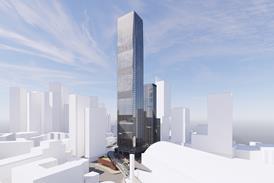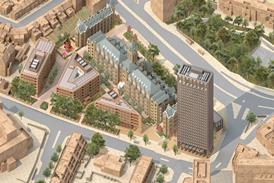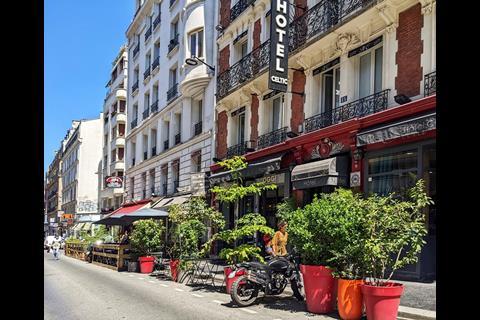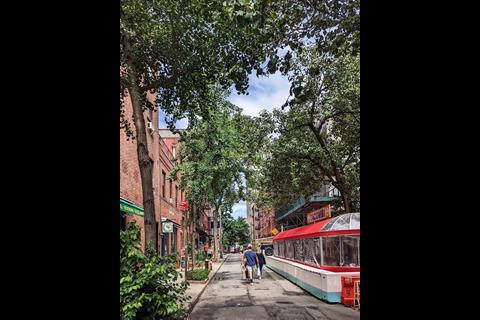Why do we massively subsidise on-street parking when there are so many other good uses for our streets, asks Samuel Hughes

Sometimes, society is wasteful in ways that are obvious to everyone. Everyone can spot the wastefulness of a white elephant infrastructure project, or of subsidising farmers to produce food that is then thrown away to avoid depressing prices. In other cases, though, we can be wasting precious goods without noticing: we become so used to squandering a resource that we no longer see what we are doing. We currently require that a huge swathe of British cities be used for nothing except parking cars. I think this is an example of wasting a hugely valuable resource without noticing we are doing so.
Space is a resource, and in many cases it is a precious one. Possessing rights over space means possessing rights to work, to sleep, to sit, to walk, and to rest. In places where many people want to do these things, space becomes intensely scarce. In central London, a square metre of floorspace can cost more than £10,000 – people are prepared to pay hundreds of thousands of pounds for the lifelong right to do certain things in a few dozen square metres. For most people, that equates to many years of work.
Some 10% of the surface area of British cities is made up of roads, and large parts of those roads are given over to parking. In central areas, these are normally rented by the local authority to residents – a so-called controlled parking zone (CPZ).
Although residents do pay a little for this, they receive a huge “implicit subsidy”: private parking in central London can cost many thousands of pounds a year, whereas residents parking in CPZs rarely costs more than a few hundred. In suburban areas, parking is often uncontrolled, meaning that anyone can park there for no payment.
It is worth stating explicitly some further facts about parking areas that we all know, but rarely focus on. In space designated for parking, almost every use except parking is banned. You cannot leave your bicycle there. You cannot put out tables and chairs. You cannot store anything there except your car.
It is widely recognised that driving in urban areas has a lot of negative effects on others
You cannot put out planters and create a little flower garden. Society gives you this space, either for free or at a huge discount – but only for car storage. This leads to some absurd workarounds: in expensive areas, some people buy a cheap vehicle just to store things inside it. Society will only let them store other things there if they encase them in a car!
Now, there are lots of reasons why societies give people the right to use space in certain ways without paying. We might want to encourage people to use the space in a certain way because it is good for them or for others. Public provision of playing fields or allotments might be examples of this. Or we might think that people should have a right to use some spaces regardless of their ability to pay, like walking in a public street or picnicking in a park.
Storing cars, however, does not obviously meet these conditions. It is widely recognised that driving in urban areas has a lot of negative effects on others, like generating congestion, road accidents, and pollution. So it is unclear why we would require that large quantities of space be used for car storage and ban it being used for anything else, even though some of those uses – planting flowers, say, or storing bicycles – might have much more positive ramifications.
And although we might feel that car storage should be a right for some people, like those whose restricted mobility means that they cannot easily travel in any other way, it seems tenuous that people with good travel alternatives should always have a right that society deliver up space to them for this purpose in particular.
For many of us, the first glimpse of an alternative way of using street space came during the pandemic. Social distancing rules forced restaurants to space tables widely, leaving many in a desperate financial position. In many towns, local authorities created new emergency rights for restaurants and cafés to turn the parking bays in front of them into seating areas, sometimes doubling the restaurants’ seating areas and arguably actually improving the appearance of the street.
For many restaurants and cafés, this space became more valuable by an almost incredible margin when they could use it for business rather than only for parking. In cities like Paris and New York, these changes were rolled out very widely, and the new system has to some extent now bedded in. In British towns, they were more fragmentary, and more likely to be rolled back since.
If our current arrangements are so unsatisfactory, what makes it so difficult to change? I suspect the answer is that status quo biases are extremely powerful here. Many new homes delivered on brownfield sites are “car free”, meaning that residents receive no rights at all to park on public streets.
This is not controversial: new residents price it into their expectations, and it forms an accepted part of modern British planning practice. But removing an existing right to park on public space generates outrage. In this domain, as in many others, people feel that a right that they have long enjoyed is something that they must be morally owed as part of the nature of things. Maybe they are not all wrong.
My view is that it is absurd to gigantically subsidise parking at the expense of other, more socially valuable, uses. But I also think that stripping people of the right to park from the top down is normally politically quixotic. We need to look at ways of creating a local mandate for change, by empowering communities to diversify their use of road space.
The system I have in mind would be something like this. After a request from (say) 20% of residents, the local authority would hold a vote on whether residents wanted to allow parking spaces to be used in a more diverse range of ways.
If communities really want to stop wasting space, why shouldn’t we let them?
Inspired by Dutch examples, we might call this a “living street”. We could consider giving business ratepayers the vote too, so that the “living streets” could also be established in shopping areas. Provision would also have to be made to compensate local authorities for any loss of profits from CPZs.
In general, residents would doubtless choose to continue allowing at least some residents parking. But they would often have some appealing alternatives. In commercial streets, the example of Paris and New York suggests that many restaurants and cafés would convert their parking areas into seating space.
In some inner urban areas, residents might want to sell their own cars and rent out their space to commuters instead. In outer urban areas, they might often prefer to use it for planters or bicycle storage. Not all uses would be acceptable, of course: uses that negatively impacted other residents would be forbidden, like dumping rubbish. But a considerably wider range of uses might be allowed than are at present.
The details are all-important, and careful work would need to be done to minimise any disruption. But the potential opportunity might be substantial.
Many people would like to use parking space differently: there might be a considerable number of streets in which a majority of people feel this way. If communities really want to stop wasting space, why shouldn’t we let them?
Postscript
Samuel Hughes is a Research Fellow at the University of Oxford and Head of Housing at the Centre for Policy Studies. He has worked with the Office for Place, Policy Exchange and Create Streets.


















3 Readers' comments